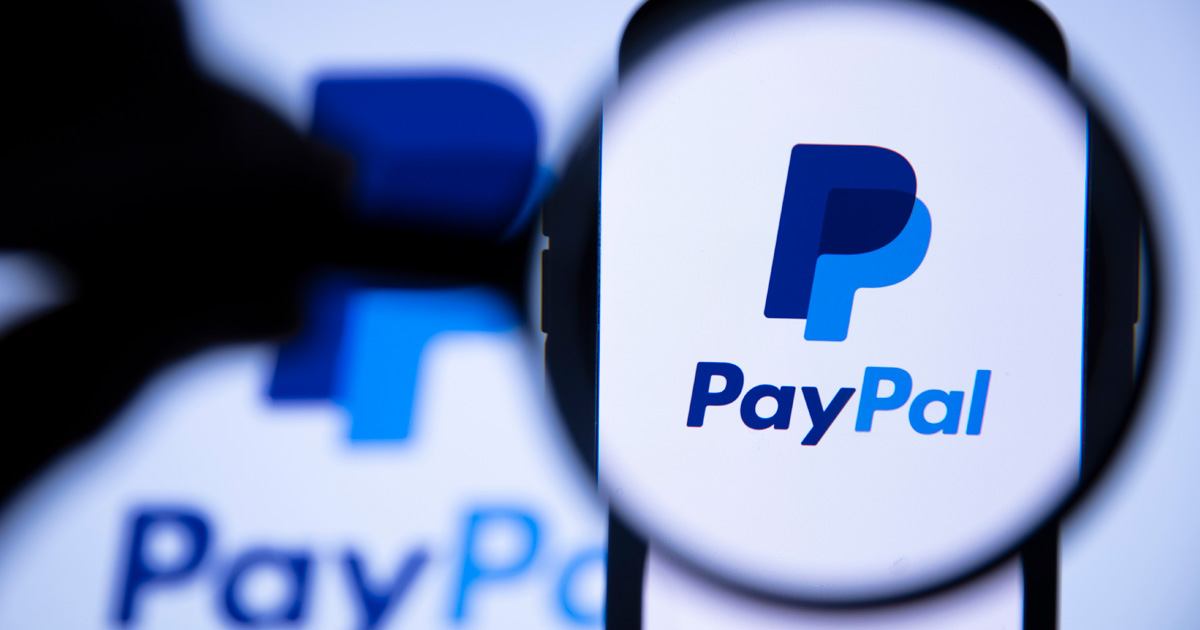PayPal recently announced a new policy change that empowers the legacy payment processor to fine users up to $2,500 for using the service for activities that include “messages, content, or materials” that “promote misinformation”.
Here’s the full change to PayPal’s Acceptable Use Policy:
Prohibited Activities
You may not use the PayPal service for activities that:involve the sending, posting, or publication of any messages, content, or materials that, in PayPal’s sole discretion (emphasis added), (a) are harmful, obscene, harassing, or objectionable, (b) depict or appear to depict nudity, sexual or other intimate activities, (c) depict or promote illegal drug use, (d) depict or promote violence, criminal activity, cruelty, or self-harm (e) depict, promote, or incite hatred or discrimination of protected groups or of individuals or groups based on protected characteristics (e.g. race, religion, gender or gender identity, sexual orientation, etc.) (f) present a risk to user safety or wellbeing, (g) are fraudulent, promote misinformation, or are unlawful, (h) infringe the privacy, intellectual property rights, or other proprietary rights of any party, or (i) are otherwise unfit for publication.
You can find the summary of these changes on PayPal’s website here, and the actual policy change buried in this PDF.
There are many layers to this problem. Stopping misinformation would seem like a worthy goal, right? Just like stopping the promotion of illegal drug use. The problem lies in the definition of “misinformation” and who gets to decide what is “misinformation”. As we have seen all too often, big tech companies get a little too slap happy with what they deem “misinformation” — even when it is quite actually fact (looking at you Twitter vis a vis Hunter Biden’s laptop).
In this policy change PayPal reserves full rights to decide what is and is not “misinformation”. There’s not even the window dressing of an advisory board. It’s just whether or not an individual at PayPal decides to cancel an account or not. It is not illegal, and it is not an infringement of rights, but it is cause to stop using PayPal and look for alternatives.
The policy change has major figures like Tim Kennedy saying “Close your PayPal account”
Close you PayPal account. Their new Policy allows them to deduct $2500 from your account for misinformation.
— Tim Kennedy (@TimKennedyMMA) October 8, 2022
Take Action
Here at RootsHQ, we not only want to keep you informed of news and updates that could impact you, but also give you the means to take action and do something about it. In this case, here’s how business owners can accept payments without relying on the misinformation police:
First, take Tim Kennedy’s advice and close your PayPal account. Once upon a time, PayPal had a competitive advantage over other payment processors. Those days are over, especially if your business serves traditional, patriotic Americans. Remove PayPal from your payment options and move forward.
Next, setup an account with Parallel Economy (www.paralleleconomy.com). This payment processor was launched with the sole focus of providing cancel-proof payment processing for businesses who don’t have to worry that something they said somewhere will somehow get labeled as “misinformation”.
There are hundreds of other options as well — G2, Investopedia, HubSpot, NerdWallet, Forbes, Kinsta, and others all have long lists of PayPal alternatives.
Finally, spread the news! Companies like PayPal should not get a pass when they get outside their lane. Shop with companies who are focused on actually providing a valuable good or service, not creating an outlet for social justice warriors.
Thank you for reading, and for caring enough to do something.




